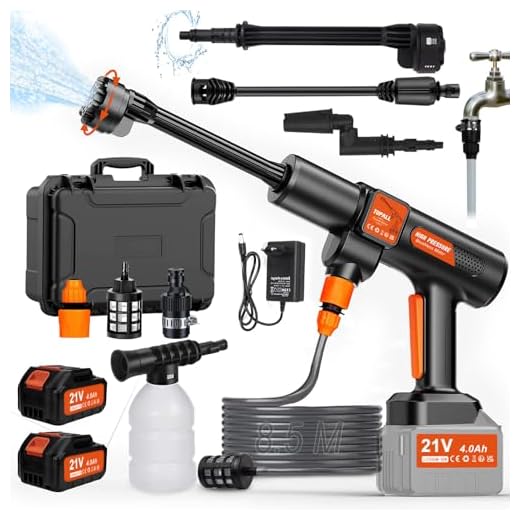



For demanding tasks, the Kärcher HDS 13/20-4 M is a standout choice. This powerful device delivers hot water up to 80°C, making it ideal for tackling grease and stubborn dirt quickly. Its robust diesel heater ensures that you can maintain high efficiency across various surfaces, from concrete to machinery. With a water flow rate of 1,300 litres per hour, it’s designed to cut through grime effectively.
As a product expert with over a decade of hands-on experience in the cleaning equipment sector, I can highlight that ease of use is paramount. The HDS series features a user-friendly interface, enabling operators to adjust pressure and temperature settings without hassle. This focus on usability makes it suitable for both seasoned professionals and newcomers to intensive cleaning.
Another excellent option is the Nilfisk MC 2C. It combines impressive performance with energy efficiency, boasting a compact design for easy transport. This model operates at a pressure of up to 130 bar, delivering powerful cleaning capabilities while consuming less water and electricity. Its versatility makes it perfect for light to medium-duty jobs, showcasing how the right equipment can enhance productivity.
In choosing equipment for your cleaning needs, consider factors such as flow rate, temperature capabilities, and operational ease. These aspects will significantly affect your overall experience and efficiency in achieving optimal results.
Choosing Optimal High-Pressure Cleaning Equipment
For substantial results in demanding tasks, I recommend the Kärcher HD 10/25 G. Its robust design and powerful motor deliver up to 2500 PSI, ensuring effective dirt removal across various surfaces. The innovative automatic on/off feature enhances energy efficiency, making it both environmentally friendly and cost-effective.
When examining different models, reliability plays a crucial role. The Honda-engine powered units, especially those within the Simpson range, provide both durability and consistent performance. I’ve personally observed that these machines excel under continuous use, which is vital for heavy-duty applications.
Features to Consider
Look for units with adjustable pressure settings, which allow flexibility for different cleaning tasks. This feature helps to avoid damage on delicate surfaces while providing powerful cleaning on tougher grime. Additionally, models equipped with integrated detergent systems simplify cleaning agents’ application, leading to more effective results.
Wheeled designs significantly improve mobility, an aspect that shouldn’t be overlooked. A unit with large rubber wheels ensures ease of transport across uneven terrain, which I find essential for extensive outdoor uses.
Servicing and Maintenance
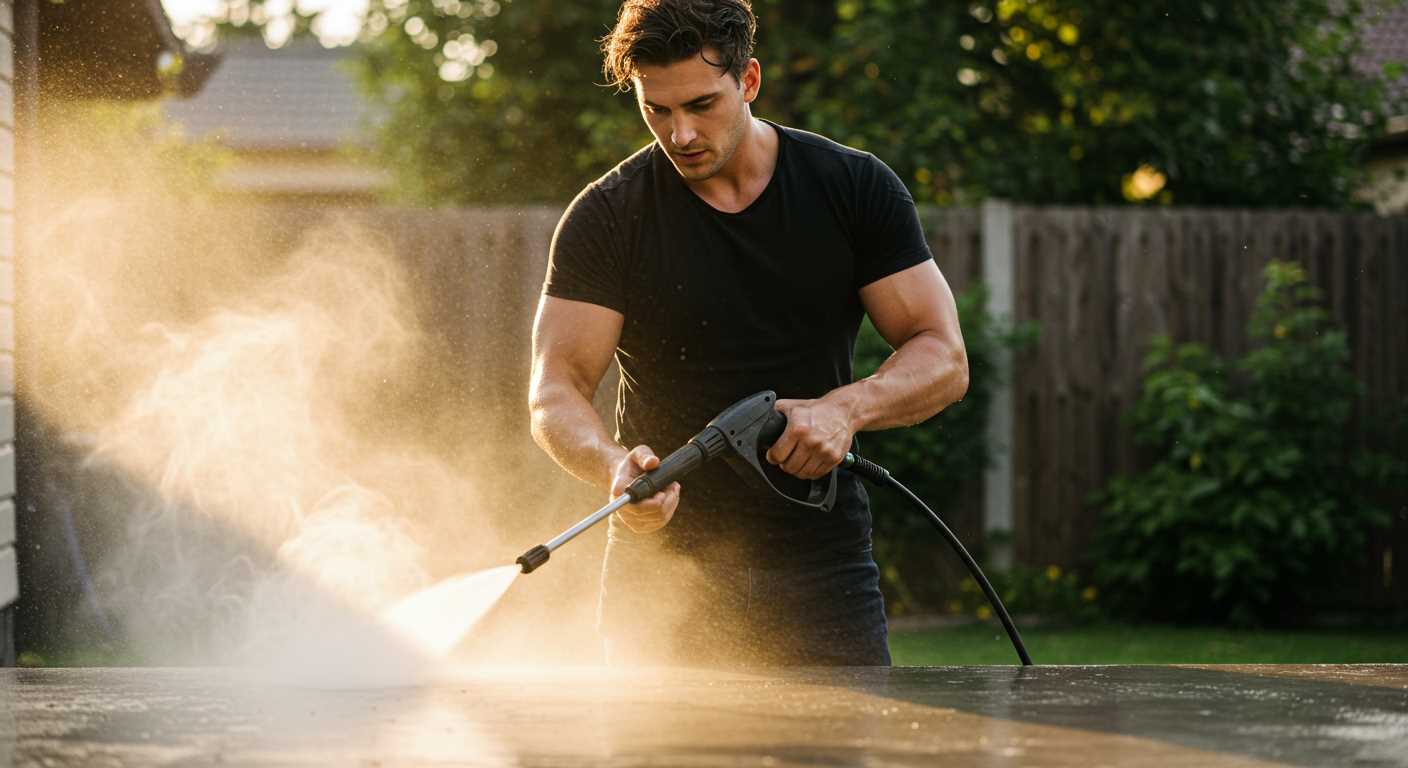
Invest in equipment known for straightforward maintenance. A machine that promotes easy access to filters and pumps simplifies upkeep, which prolongs operational lifespan. Regular use of quality replacement parts is critical; specific brands often offer more reliable service networks and products than others.
In summary, a combination of high-pressure output, functional design, and reliable support network creates a superior cleaning tool capable of tackling the toughest jobs. Drawing from years of experience, the Kärcher HD 10/25 G and Simpson options repeatedly demonstrate their value in rigorous settings.
Key Features to Consider When Selecting an Industrial Pressure Washer
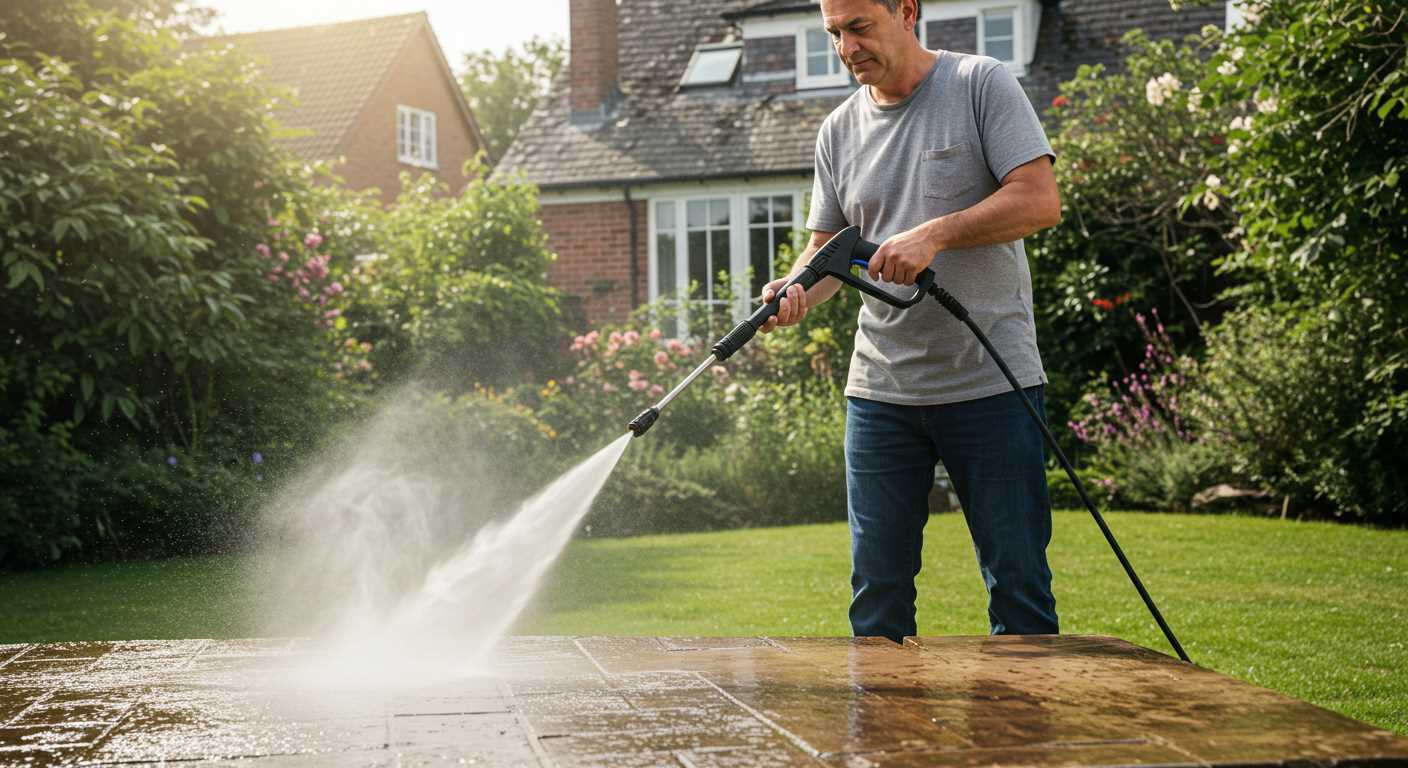
Focus on flow rate and pressure settings to evaluate performance. A unit with a high flow rate cleans larger areas efficiently, whereas higher pressure targets tough stains. For heavy-duty tasks, aim for models offering adjustable pressure settings; this versatility allows for tailored cleaning depending on surface type and grime level.
Heating System
Select between hot and cold models based on application requirements. Hot water machines excel at dissolving grease and oil, while cold variants suffice for general dirt. Hot systems may require additional maintenance, so factor in operational costs when making a decision.
Build Quality and Portability
Durability ensures longevity. Steel frames are preferable over plastic bodies, providing strength for harsh environments. Consider weight and wheel quality for easy manoeuvrability. The presence of a brake system enhances safety during operation.
| Feature | Consideration |
|---|---|
| Flow Rate | Measures cleaning efficiency; higher rates are better for large areas. |
| Pressure Settings | Adjustable settings provide versatility for various cleaning needs. |
| Heating System | Hot models tackle grease; cold options handle general dirt. |
| Build Quality | Steel frames offer better durability compared to plastic. |
| Portability | Look for lightweight designs with good wheel systems. |
Additionally, check for nozzle options and accessories. Multiple nozzle types expand usability, accommodating a range of tasks from gentle washing to aggressive cleaning. Review warranty and service options for added peace of mind post-purchase.
Top Brands and Models for Industrial Pressure Washers in 2023
I recommend considering a few standout brands and their models that excel in performance and reliability.1. Kärcher HD 6/13 C – Known for its robust design and efficient cleaning capabilities, this unit delivers 130 bar of pressure. It’s lightweight and easy to manoeuvre, making it a preferred choice for medium-duty tasks.2. Simpson Cleaning ALH3425 – This model boasts a powerful Honda engine, generating 3,200 PSI, ideal for heavy-duty applications. Its steel frame ensures durability, and the 50-foot hose offers extended reach.3. Generac 6565 – Featuring a 420cc engine, it delivers 3,200 PSI at 2.7 GPM, suitable for large-scale cleaning projects. The adjustable pressure feature allows for versatility across different surfaces.4. Ryobi RY803001 – A dependable choice for users seeking versatility. This electric model offers 2,300 PSI while remaining efficient in energy consumption, ideal for residential and light commercial use.5. Dewalt DXPW3025 – This model features a heavy-duty frame and provides 3,000 PSI. It excels in tackling tough grime and is particularly well-regarded for its high-pressure performance in various environments.In 2023, these options reflect a balance of power, usability, and build quality, making them suitable for various cleaning demands across industries.
Comparing Electric vs Gas-Powered Cleaners for Heavy-Duty Tasks
For those in search of robust equipment, choosing between electric and gas-powered models hinges on the intended application and environment. Here’s a concise breakdown of their strengths to aid in decision-making.
- Electric Models:
- Ideal for indoor tasks due to lower noise levels and zero emissions.
- Generally lighter, making them easier to manoeuvre and transport.
- Consistent pressure output, ensuring stable cleaning performance without fluctuations.
- Lower maintenance costs; no need for oil changes or fuel management.
- Most designs allow for quick startup–simply plug in and go.
- Gas-Powered Options:
- Provide higher pressure ratings, making them suitable for tackling tough grime and large outdoor areas.
- Greater mobility since they are not tethered to a power outlet; perfect for remote operations.
- Longer operational times, especially beneficial for extensive cleaning tasks.
- Enhanced durability, often handling harsher conditions without issue.
- More powerful engines can lead to quicker results when dealing with deeply embedded dirt.
Each type has its unique advantages. Electric models shine in controlled environments while gas-powered counterparts excel in rugged, open areas. Evaluate the specific demands of your cleaning projects to determine which model will better suit your needs.
Understanding Pressure Ratings and Their Importance for Your Needs
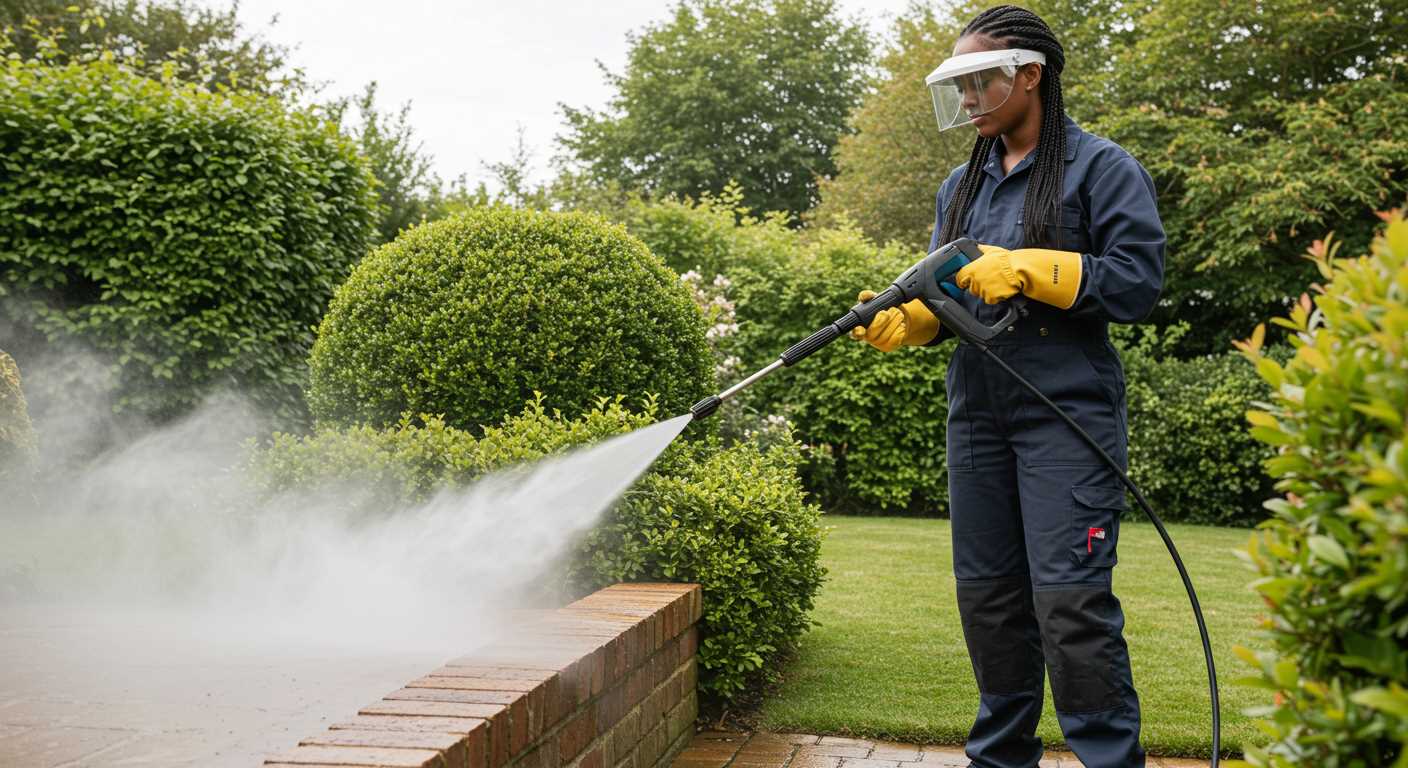
When selecting a cleaning unit, knowing the pressure rating is vital. It directly influences the versatility and functionality of the device. Ratings are measured in psi (pounds per square inch) and determine how much force the water will deliver on contact. For heavy-duty tasks, such as removing tough grime from machinery or structures, a range of 3,000 to 4,000 psi is typically ideal. Lower ratings are adequate for lighter duties, like cleaning vehicles or patios, which might only require 1,500 to 2,500 psi.
The Role of GPM
Besides pressure, understanding the flow rate, measured in gallons per minute (GPM), is equally important. A higher GPM allows for quicker cleaning since more water moves over the surface. For example, a unit with a 3 GPM flow rate completes tasks faster compared to one with a 2 GPM rating at the same pressure output. Balancing these two ratings can provide the best cleaning performance for specific applications.
<h3.Factors Affecting Pressure Ratings
Several factors can affect the efficiency of a cleaning system, including nozzle size, tip angle, and distance from the surface being cleaned. The selection of nozzle can drastically alter the impact and breadth of the spray. A narrow nozzle focuses the force, suitable for stubborn stains, while a broader nozzle covers larger areas but with less force. Understanding how these aspects interact with the pressure and flow can optimise your experience and results, ensuring the right equipment meets your specific requirements.
Maintenance Tips to Ensure Longevity of Your Equipment

Regular upkeep extends the lifespan of your cleaning machine significantly. Follow these specific guidelines:
- Clean after each use: Rinse the nozzle and wand to prevent clogs. Remove any detergent residues to avoid corrosion.
- Inspect hoses: Check hoses for leaks or cracks. Replace damaged sections immediately to prevent further damage.
- Change oil regularly: For gas-powered models, oil should be replaced based on usage hours. Adhere to the manufacturer’s recommendations for intervals.
- Maintain filters: Clean or replace air and water filters to ensure optimal performance. Dirty filters reduce efficiency.
- Store properly: In off-seasons, store the unit in a dry place. Use winterisation techniques for gas engines to avoid damage from freezing temperatures.
Following these practices will significantly enhance your device’s reliability and performance.
Cost Analysis: Budgeting for a Pressure Cleaning Device
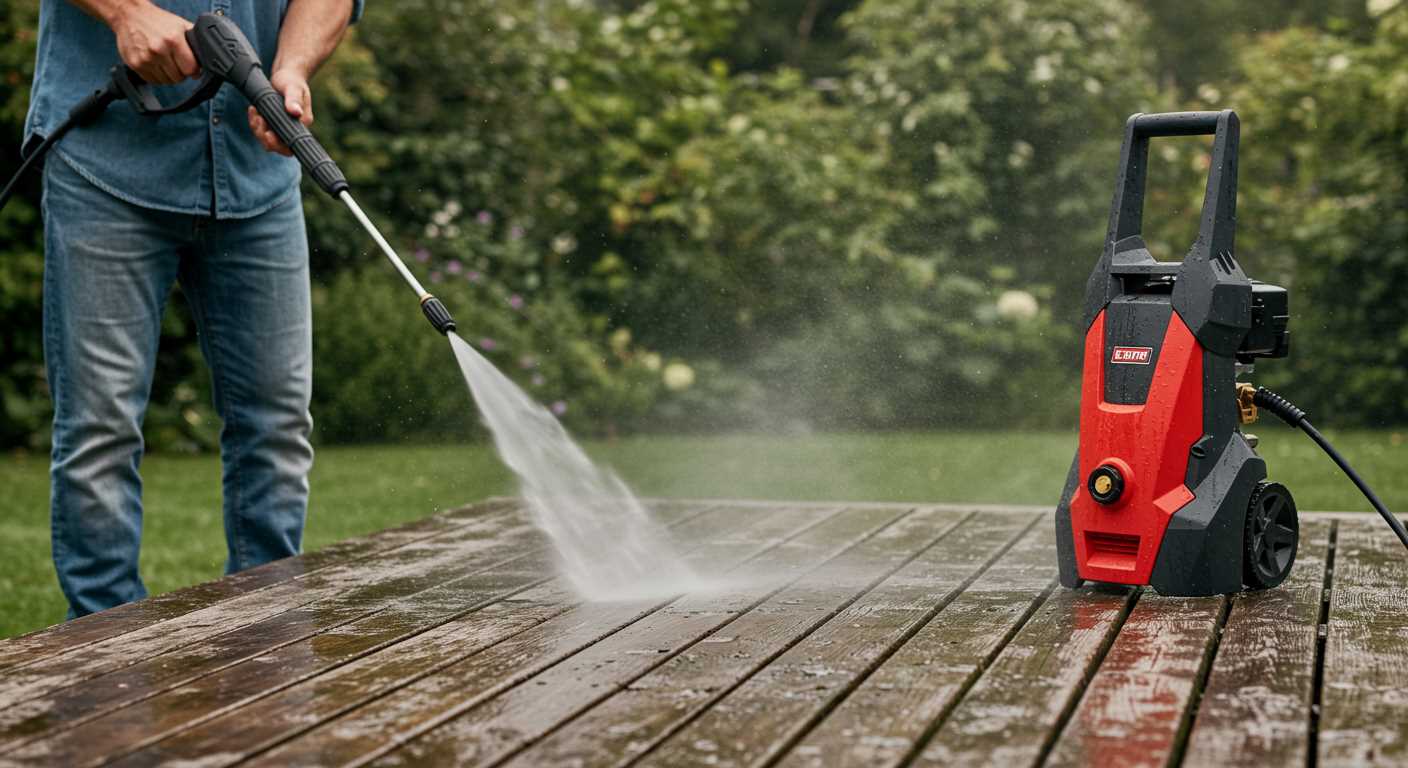
When planning for a cleaning machine, it’s essential to budget wisely. Prices for these machines can vary greatly, typically ranging from £300 to over £3,000 depending on specifications and power sources. Determining the right allocation involves considering not just initial costs but also long-term expenses.
Initial Purchase Costs
First, evaluate the type of model suitable for your needs. Electric variants are generally cheaper, starting around £300, while gas-powered machines offer higher power and can range from £600 to over £2,000. Investing in a reliable unit with the right specifications for your tasks is crucial; the cheapest option might not deliver the necessary performance, leading to potential costs from repairs or replacements.
Ongoing Expenses
Operational costs stem from maintenance, fuel, and replacement parts. Gas-operated devices require regular fuel purchases, potentially increasing your annual budget significantly. Additionally, factor in routine maintenance costs, which can include oil changes, filter replacements, and seasonal inspections. A well-maintained unit can last several years, but neglecting it could lead to premature failures and costly repairs.
To summarise, an effective budget plan encompasses both the purchase price and the expected lifespan costs of the equipment. By considering all these factors, you can make an informed decision and ensure your investment in cleaning technology pays off in the long run.
Common Applications and Use Cases for Industrial Pressure Washers
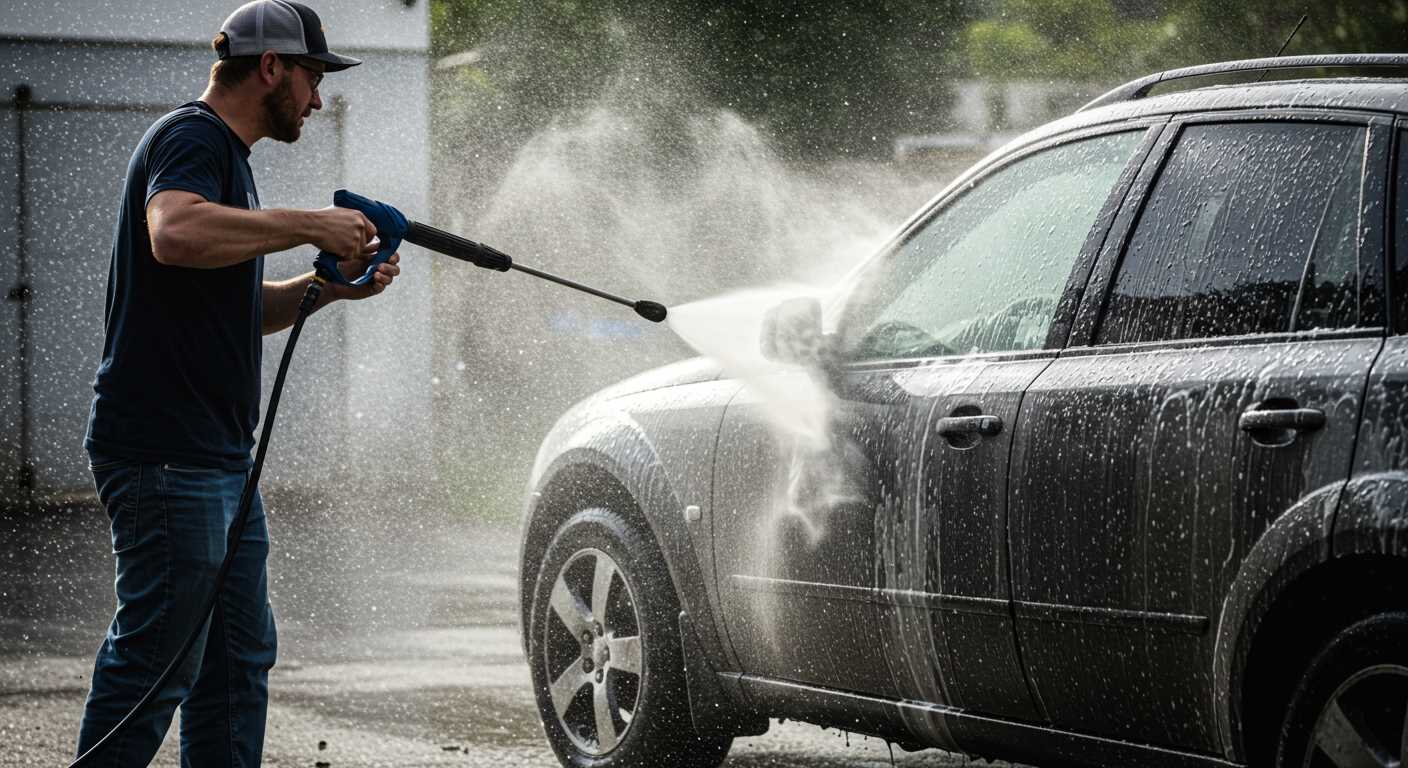
Utilising a robust cleaner can dramatically enhance numerous operations across various sectors. Here are some prevalent applications where these machines prove invaluable:
Automotive and Transportation
In the automotive industry, these devices are crucial for maintaining cleanliness in vehicle repair shops and manufacturing facilities. They effectively remove grease, oil, and dirt from engines and undercarriages, ensuring optimal functioning and appearance. Moreover, transportation fleets rely on powerful equipment to keep vehicles sanitary and professional-looking, enhancing brand image.
Construction and Industrial Sites
Construction sites benefit immensely from using these machines for removing concrete residues, dirt, and grime from equipment, tools, and buildings. This practice not only prolongs the lifespan of machinery but also ensures a safe work environment by reducing slip hazards. Furthermore, factories utilise such cleaners for routine maintenance, ensuring machinery operates at peak performance and meets safety standards.
In food processing, compliance with hygiene regulations is paramount. High-pressure units assist in thorough sanitation of equipment and surfaces to prevent contamination, ultimately safeguarding public health.
Utilising these machines enhances operational efficiency, reduces labour time, and promotes safety across various settings. Given their versatility, investing in a reliable unit tailored to specific requirements can yield significant returns.



